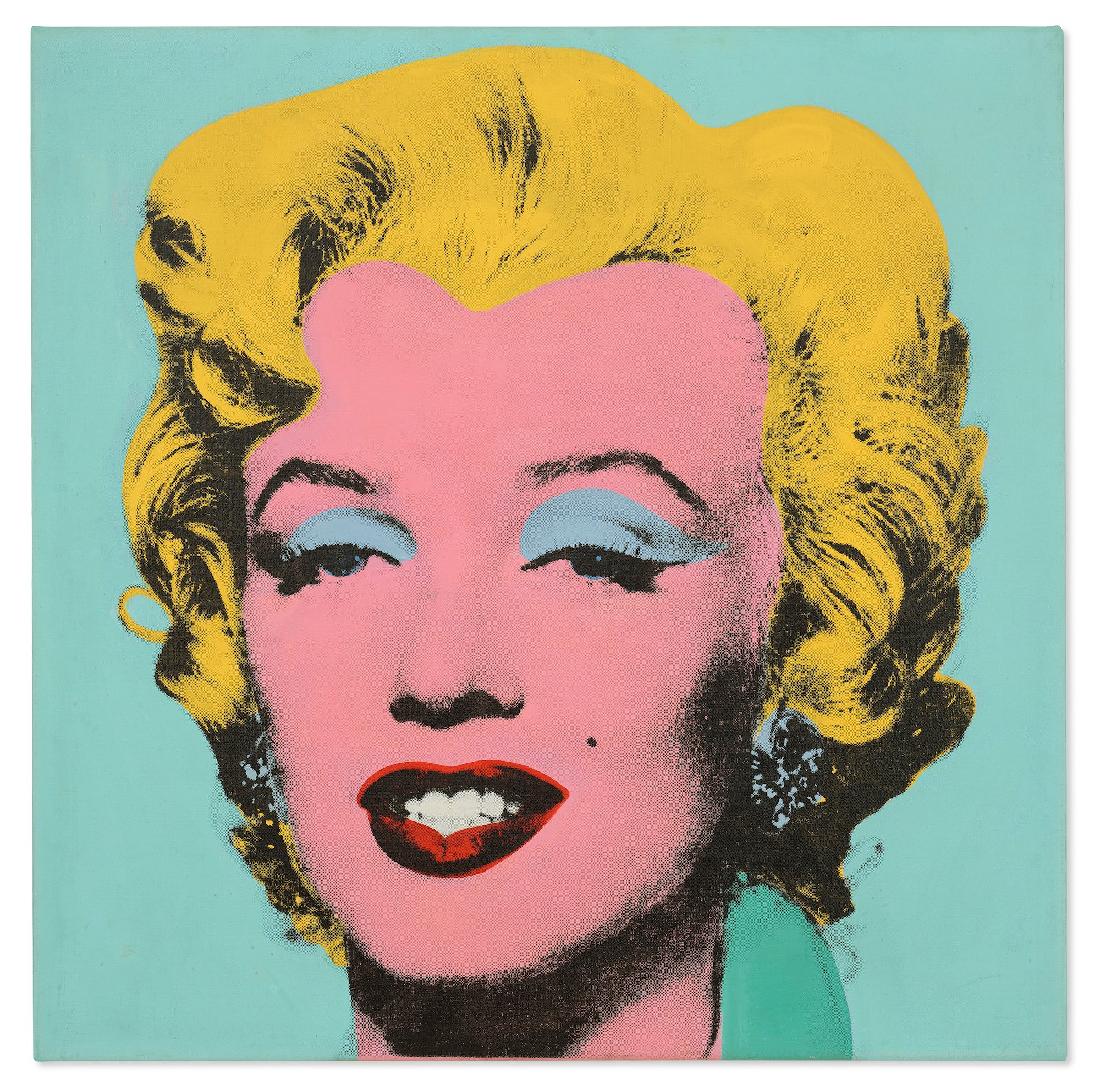
How high can the art market go? We may be about to find out.
An iconic portrait of Marilyn Monroe by Andy Warhol is expected to fetch $200 million at Christie’s in May. It’s the highest estimate ever recorded for a work of art at auction.
Shot Sage Blue Marilyn (1964) is being sold by the Thomas and Doris Ammann Foundation in Zürich, Switzerland, and all the proceeds will go to charitable causes, particularly those benefiting children and health. Just one painting, the offering represents the largest philanthropic sale since the Rockefeller auction in 2018, according to Christie’s.
The Marilyn “is poised to become the most expensive painting of the 20th century,” Alex Rotter, Christie’s chairman of 20th and 21st century art, said at a press conference, unveiling the work at the company’s Rockefeller Center headquarters in New York.
For the work to become the priciest painting ever sold, the Warhol’s result would have to more than double its estimate and surpass the $450.3 million paid for Leonardo Da Vinci’s Salvator Mundi in 2017. That work was estimated at $100 million.
After its debut in New York, the painting will travel to Hong Kong and Taipei for previews. In a risky move, it does not have a guarantee.
The sale will be a test of the masterpiece market. Warhol, once a proxy for the contemporary art trade at large, has seen prices decline in recent years as taste shifted toward new, younger talents and supply of the Pop artist’s work on the auction market dried up.
In 2021, Warhol generated $347.6 million at auction, according to the Artnet Price Database, down 34 percent from the peak in 2015. (Meanwhile, Warhol’s protégé, Jean-Michel Basquiat, accounted for $439.6 million in sales, second only to Pablo Picasso.) Warhol’s auction record hasn’t been challenged since 2013m when Silver car crash (Double disaster) (in 2 parts) (1963) fetched $105 million at Sotheby’s.
Siblings Doris and Thomas Ammann founded Thomas Ammann Fine Art, a legendary gallery that showed a wide range of blue-chip art, in 1977. After Thomas died in 1993, his sister Doris—a steely, chic presence in auction salesrooms and top international art fairs—remained at the helm. She died in April 2021.
Christie’s Americas chairman Marc Porter looks on as Christie’s chairman Alex Rotter announces the sale of Andy Warhol’s Shot Sage Blue Marilyn on March 21, 2022 in New York City. (Photo by Dia Dipasupil/Getty Images)
Doris didn’t want to leave behind a museum, but rather ensure that her family’s legacy “will help others,” said Marc Porter, chairman of Christie’s Americas. The newly established foundation aims to achieve this goal. The Ammann collection includes numerous masterpieces, but it is unclear whether any beyond Shot Sage Blue Marilyn will go to auction.
Warhol first painted Marilyn in 1962 and returned to his famous and tragic muse twice more over the course of his career. The larger and more detailed format that he created in 1964 is considered the most desirable subset of the subject, which itself is the most desirable in Warhol’s oeuvre.
Shot Sage Blue Marilyn is one in a series of five paintings that also includes versions in red, orange, and turquoise. Their title comes from an incident when performance artist Dorothy Podber shot the four stacked canvases with a revolver.
The Ammann siblings bought the painting from Condé Nast mogul and mega-collector Si Newhouse around 40 years ago.
In 1998, Newhouse picked up another version of the painting—the orange one—at auction for $17.3 million against a high estimate of $6 million. It was a watershed moment for the art market, according to Rotter. After Newhouse’s death in 2017, billionaire hedge-fund manager Ken Griffin bought that work privately for around $200 million, according to people familiar with the deal.
“Every time a painting like this comes up for auction,” Rotter said, “it changes the market not only for Warhol, but for the art market itself.”